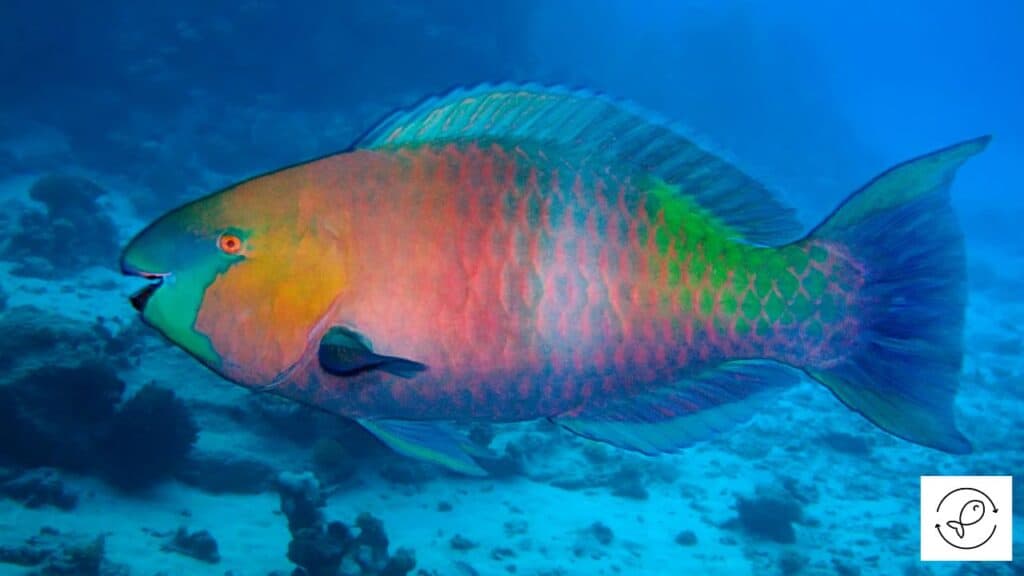Aquarists often look for fish that eat poop because they can help to keep the water clean and lessen their tank maintenance work.
Certain fish species eat poop in their natural habitat.
However, they eat it for specific reasons and can’t be housed in aquariums as poop-eating fish.
Here are the popular fish that are known to eat poop.
Goldfish
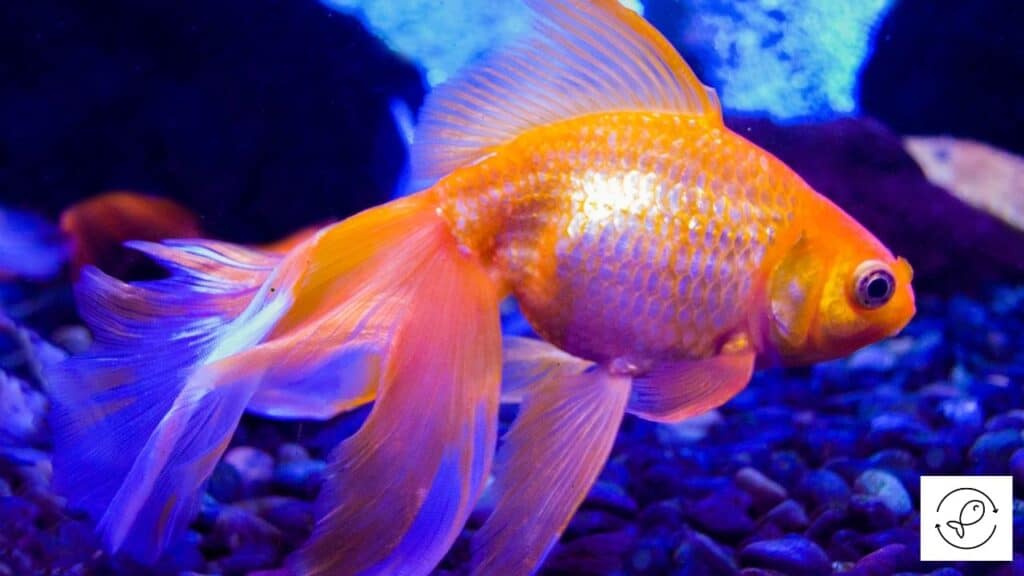
Goldfish are the most popular fish among aquarists for their striking coloration, ease of care, hardiness, and low maintenance costs.
Although these fish don’t need constant monitoring, they are notorious for eating their poop.
Goldfish are scavengers and have an insatiable appetite for food.
They will eat almost anything that fits into their mouth, including feces.
The good thing is that since these fish eat poop accidentally while searching for food, they usually spit it out.
However, they will eat the feces when hungry and if they don’t find any edible food around.
Since poop contains harmful bacteria and organisms, consuming a large amount of poop consistently can make them sick.
You can prevent your goldfish from eating poop by providing adequate food, vacuuming the substrate, and cleaning the tank regularly.
Mollies
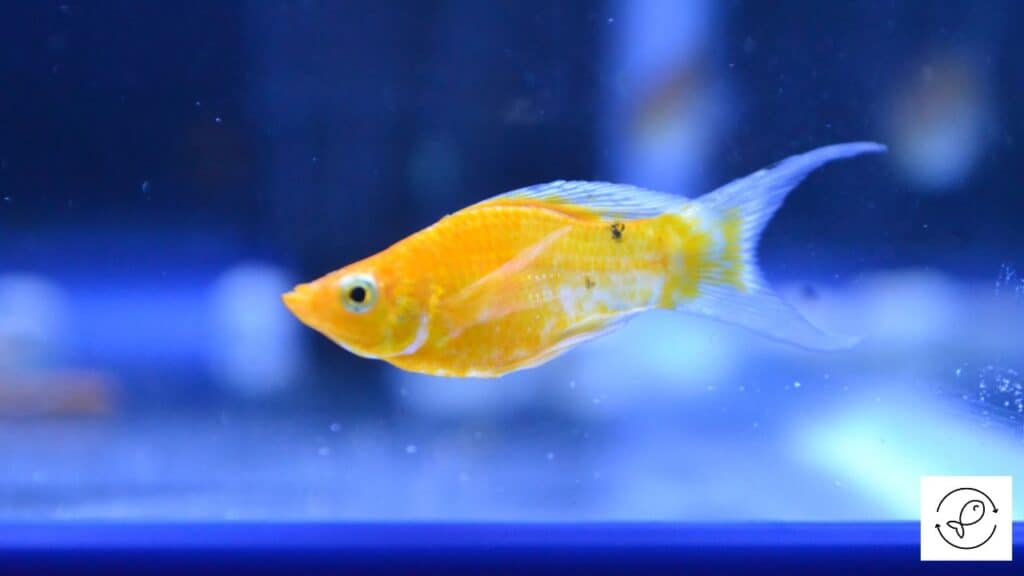
Mollies are freshwater fish belonging to the Poeciliidae family.
There are several species of mollies, each differing in color, size, and habitat.
Mollies are mainly found from the southern states of the US down to Central America.
They are commonly found in ponds, lakes, rivers, streams, and other freshwater habitats.
They also sometimes venture into brackish estuaries.
These omnivorous fish feed on algae, plants, insects, small crustaceans, worms, and even some plant material in their natural environment.
Many aquarists have found their mollies eating poop as it falls off and drifts down the tank.
However, they don’t eat poop as a food source.
Hence, mollies consistently eating poop is unusual and indicates a problem.
A healthy molly will never eat poop and spit it out immediately if it accidentally takes the poop in its mouth.
However, mollies can eat poop due to inadequate nourishment, internal parasites, or poor water quality.
In such cases, they look upon poop as a form of food to satiate their hunger. Some mollies even eat poop out of curiosity.
The best way to prevent mollies from eating poop is by providing them with adequate nutritious food and keeping the tank clean.
If you still notice your mollies eating poop, the chances of them having a parasite problem are high.
You should consult your veterinarian immediately without further delay.
Tilapia
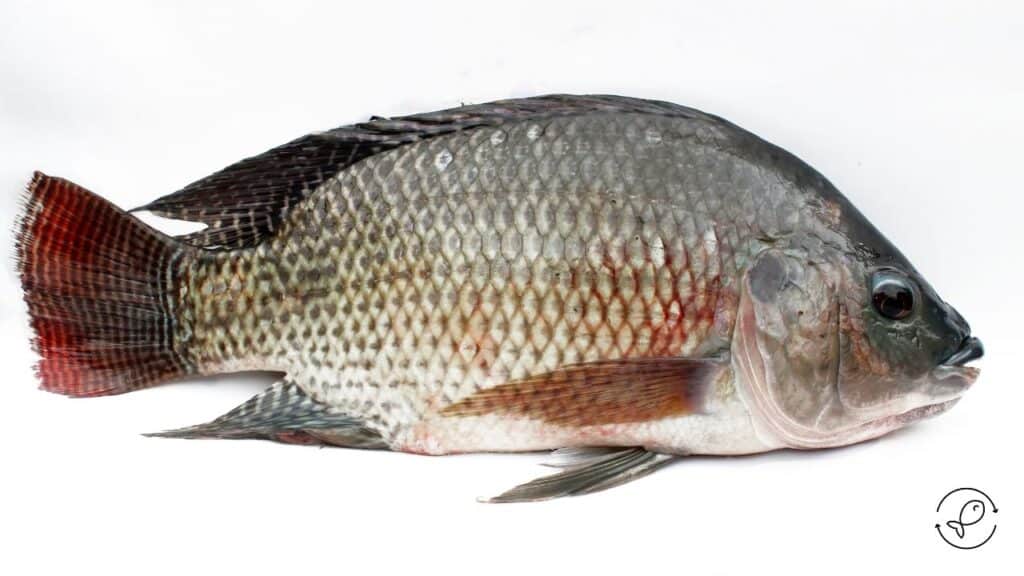
Tilapias are freshwater fish species belonging to the Cichlidae family. These fish are native to the Middle East and Africa.
However, they are now found worldwide due to their ability to adapt to different environments and their popularity in the aquaculture and aquaponics sector.
Tilapia inhabit shallow ponds, streams, lakes, and rivers and are less commonly found in brackish waters.
They are also the fourth-most consumed fish in the United States due to their easy preparation, low cost, and good taste.
However, the lesser-known fact about these fish is that they are known to eat poop when no other food is provided in captivity.
They primarily feed on algae in their natural environment and are reared on soybean meal and corn on farms.
There have been cases where Asian farms have fed them sheep, poultry, and hog waste.
It isn’t entirely clear how widespread this practice is across Asia, but it doesn’t occur in North America.
The water quality where these fish are raised is constantly monitored, and they are well cared for in the United States.
Scat
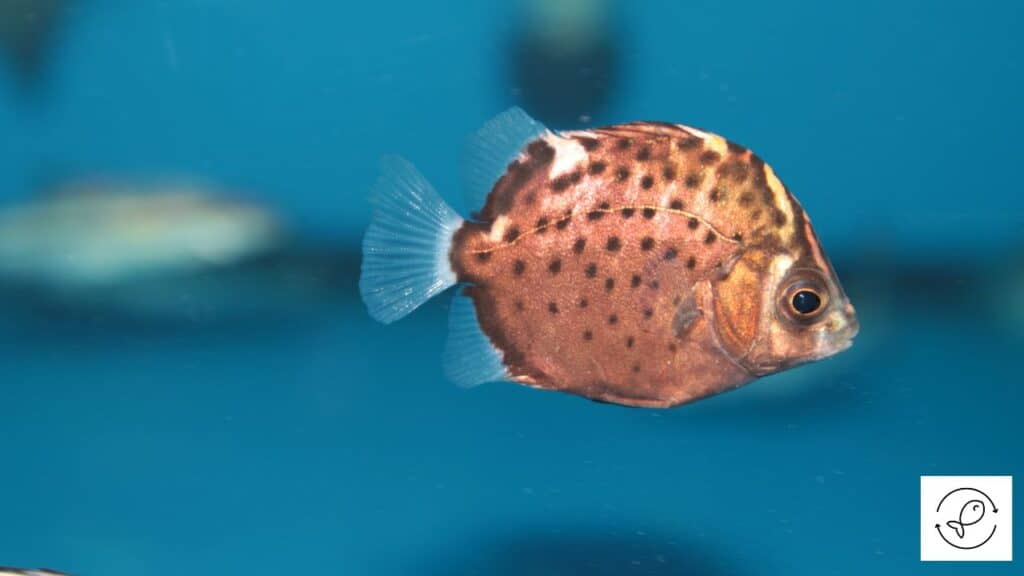
Scat, also known as spotted scat, spotted butterfish, or tiger scat, is a fish species belonging to the Scatophagidae family.
They are native to the Indo-Pacific region and commonly found in muddy coastal areas, including harbors, mangroves, estuaries, and the lower courses of rivers.
Their scientific name: Scatophagus argus, means the tendency to eat the feces of other animals.
The English name “scat,” derived from the Greek word “skat,” means feces or dung.
The Latin suffix “phagus” means to consume. In combination, Scatophagus means “feces eater.”
Although these fish consume poop, they are not exclusively feces eaters.
In their natural environment, they eat various food, including plant matter, insects, worms, and small crustaceans.
Scats are often kept in aquariums due to their attractive appearance, playful nature, and ease of care.
In captivity, you can feed them a well-balanced and nutritious diet consisting of spirulina fish food, vegetable flakes, and veggies such as frozen peas, spinach, lettuce, etc.
You can also occasionally feed them meaty food, such as bloodworms, chopped prawns, krill, brine shrimp, mysis shrimp, etc., as a treat to meet their protein requirement.
Parrotfish
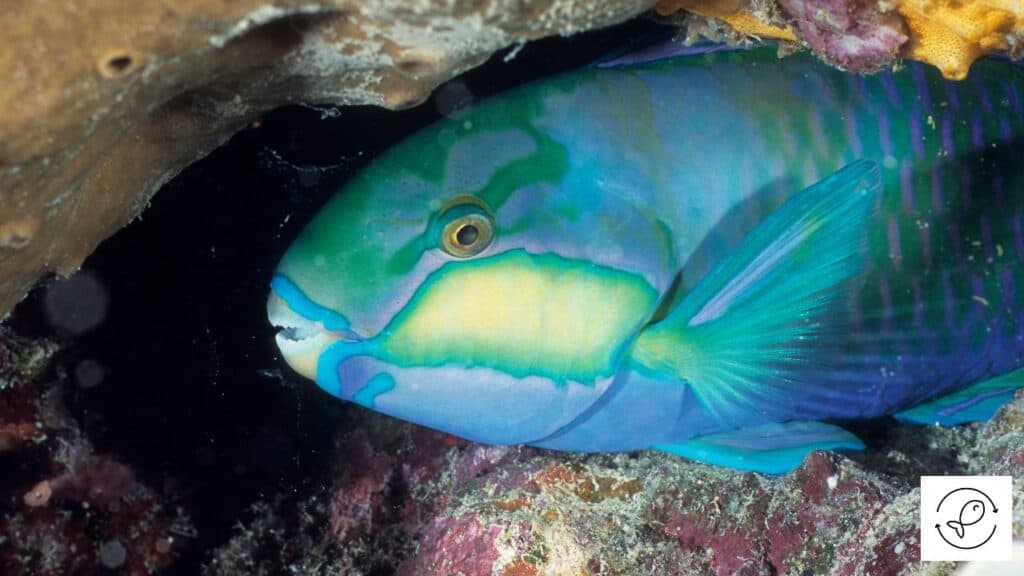
Parrotfish is a group of around 90 fish species that belong to the Scaridae family or a subfamily Scarinae of the wrasses.
These fish are native to tropical and subtropical oceans throughout the world.
They primarily inhabit the coral reefs, rocky coasts, and seagrass beds.
Coral reefs are one the most biodiverse ecosystems in the world.
This makes them an important habitat for many marine life forms.
Most parrotfish species are herbivores. They primarily feed on epilithic algae and fallen corals in their natural habitat.
However, an algae-based diet is poor in vital nutrients and doesn’t provide sufficient nutrition for growth.
So parrotfish have found an alternative to meet their nutritional requirements by eating the poop of other fish.
Researchers found that other coral reef species eat 85 percent of the poop waste produced by plankton-feeding species.
What was striking in this research was that out of the entire quantity of feces eaten by fish, over 90% of the poop was consumed by parrotfish and surgeonfish alone.
This study documents the first time feces was consumed by herbivorous fish species in the Caribbean.
It highlights an important yet understudied source of nutrition for these species.
Another unique feature of parrotfish is that they poop sand in large quantities and play a significant role in bioerosion.
Surgeonfish
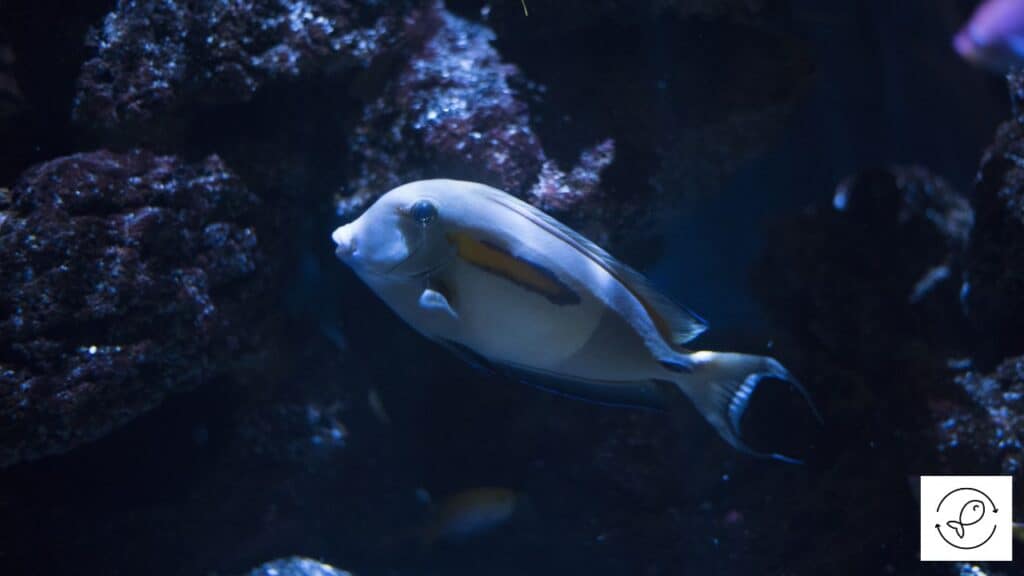
Surgeonfish are tropical marine fish belonging to the Acanthuridae family.
This family includes tangs, unicornfish, and around 86 other marine fish species that mainly reside in coral reefs and tropical seas worldwide.
They are medium-sized fish ranging from 6 to 15 inches in length.
These fish are usually peaceful and often kept in home aquariums with other surgeonfish and similar temperament fish.
Just like parrotfish, surgeonfish are also known to eat feces in coral reefs.
Researchers found out that the diet of these fish mainly consists of algae, which has low nutritional value.
So they consume micronutrient-rich fecal pellets to meet their dietary requirements.

